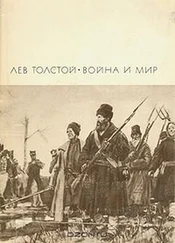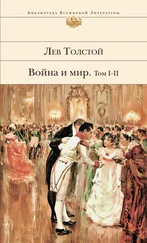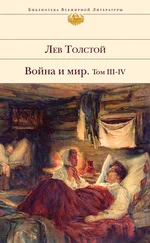| Though the troops were ill-clad, exhausted, and had lost a third of their number in killed, wounded, sick, and stragglers; though a number of sick and wounded had been abandoned on the other side of the Danube with a letter in which Kutuzov entrusted them to the humanity of the enemy; and though the big hospitals and the houses in Krems converted into military hospitals could no longer accommodate all the sick and wounded, yet the stand made at Krems and the victory over Mortier raised the spirits of the army considerably. |
Несмотря на то, что войска были раздеты, изнурены, на одну треть ослаблены отсталыми, ранеными, убитыми и больными; несмотря на то, что на той стороне Дуная были оставлены больные и раненые с письмом Кутузова, поручавшим их человеколюбию неприятеля; несмотря на то, что большие госпитали и дома в Кремсе, обращенные в лазареты, не могли уже вмещать в себе всех больных и раненых, -несмотря на всё это, остановка при Кремсе и победа над Мортье значительно подняли дух войска. |
| Throughout the whole army and at headquarters most joyful though erroneous rumors were rife of the imaginary approach of columns from Russia, of some victory gained by the Austrians, and of the retreat of the frightened Bonaparte. |
Во всей армии и в главной квартире ходили самые радостные, хотя и несправедливые слухи о мнимом приближении колонн из России, о какой-то победе, одержанной австрийцами, и об отступлении испуганного Бонапарта. |
| Prince Andrew during the battle had been in attendance on the Austrian General Schmidt, who was killed in the action. |
Князь Андрей находился во время сражения при убитом в этом деле австрийском генерале Шмите. |
| His horse had been wounded under him and his own arm slightly grazed by a bullet. |
Под ним была ранена лошадь, и сам он был слегка оцарапан в руку пулей. |
| As a mark of the commander in chief's special favor he was sent with the news of this victory to the Austrian court, now no longer at Vienna (which was threatened by the French) but at Brunn. |
В знак особой милости главнокомандующего он был послан с известием об этой победе к австрийскому двору, находившемуся уже не в Вене, которой угрожали французские войска, а в Брюнне. |
| Despite his apparently delicate build Prince Andrew could endure physical fatigue far better than many very muscular men, and on the night of the battle, having arrived at Krems excited but not weary, with dispatches from Dokhturov to Kutuzov, he was sent immediately with a special dispatch to Brunn. |
В ночь сражения, взволнованный, но не усталый(несмотря на свое несильное на вид сложение, князь Андрей мог переносить физическую усталость гораздо лучше самых сильных людей), верхом приехав с донесением от Дохтурова в Кремс к Кутузову, князь Андрей был в ту же ночь отправлен курьером в Брюнн. |
| To be so sent meant not only a reward but an important step toward promotion. |
Отправление курьером, кроме наград, означало важный шаг к повышению. |
| The night was dark but starry, the road showed black in the snow that had fallen the previous day-the day of the battle. |
Ночь была темная, звездная; дорога чернелась между белевшим снегом, выпавшим накануне, в день сражения. |
| Reviewing his impressions of the recent battle, picturing pleasantly to himself the impression his news of a victory would create, or recalling the send-off given him by the commander in chief and his fellow officers, Prince Andrew was galloping along in a post chaise enjoying the feelings of a man who has at length begun to attain a long-desired happiness. |
То перебирая впечатления прошедшего сражения, то радостно воображая впечатление, которое он произведет известием о победе, вспоминая проводы главнокомандующего и товарищей, князь Андрей скакал в почтовой бричке, испытывая чувство человека, долго ждавшего и, наконец, достигшего начала желаемого счастия. |
| As soon as he closed his eyes his ears seemed filled with the rattle of the wheels and the sensation of victory. |
Как скоро он закрывал глаза, в ушах его раздавалась пальба ружей и орудий, которая сливалась со стуком колес и впечатлением победы. |
| Then he began to imagine that the Russians were running away and that he himself was killed, but he quickly roused himself with a feeling of joy, as if learning afresh that this was not so but that on the contrary the French had run away. |
То ему начинало представляться, что русские бегут, что он сам убит; но он поспешно просыпался, со счастием как будто вновь узнавал, что ничего этого не было, и что, напротив, французы бежали. |
| He again recalled all the details of the victory and his own calm courage during the battle, and feeling reassured he dozed off.... The dark starry night was followed by a bright cheerful morning. |
Он снова вспоминал все подробности победы, свое спокойное мужество во время сражения и, успокоившись, задремывал... После темной звездной ночи наступило яркое, веселое утро. |
| The snow was thawing in the sunshine, the horses galloped quickly, and on both sides of the road were forests of different kinds, fields, and villages. |
Снег таял на солнце, лошади быстро скакали, и безразлично вправе и влеве проходили новые разнообразные леса, поля, деревни. |
| At one of the post stations he overtook a convoy of Russian wounded. |
На одной из станций он обогнал обоз русских раненых. |
| The Russian officer in charge of the transport lolled back in the front cart, shouting and scolding a soldier with coarse abuse. |
Русский офицер, ведший транспорт, развалясь на передней телеге, что-то кричал, ругая грубыми словами солдата. |
| In each of the long German carts six or more pale, dirty, bandaged men were being jolted over the stony road. |
В длинных немецких форшпанах тряслось по каменистой дороге по шести и более бледных, перевязанных и грязных раненых. |
| Some of them were talking (he heard Russian words), others were eating bread; the more severely wounded looked silently, with the languid interest of sick children, at the envoy hurrying past them. |
Некоторые из них говорили (он слышал русский говор), другие ели хлеб, самые тяжелые молча, с кротким и болезненным детским участием, смотрели на скачущего мимо их курьера. |
| Prince Andrew told his driver to stop, and asked a soldier in what action they had been wounded. |
Князь Андрей велел остановиться и спросил у солдата, в каком деле ранены. |
| "Day before yesterday, on the Danube," answered the soldier. |
"Позавчера на Дунаю", отвечал солдат. |
| Prince Andrew took out his purse and gave the soldier three gold pieces. |
Князь Андрей достал кошелек и дал солдату три золотых. |
| "That's for them all," he said to the officer who came up. "Get well soon, lads!" he continued, turning to the soldiers. "There's plenty to do still." |
- На всех, - прибавил он, обращаясь к подошедшему офицеру. - Поправляйтесь, ребята, -обратился он к солдатам, - еще дела много. |
| "What news, sir?" asked the officer, evidently anxious to start a conversation. |
- Что, г. адъютант, какие новости? - спросил офицер, видимо желая разговориться. |
| "Good news!... |
- Хорошие! |
| Go on!" he shouted to the driver, and they galloped on. |
Вперед, - крикнул он ямщику и поскакал далее. |
| It was already quite dark when Prince Andrew rattled over the paved streets of Brunn and found himself surrounded by high buildings, the lights of shops, houses, and street lamps, fine carriages, and all that atmosphere of a large and active town which is always so attractive to a soldier after camp life. |
Уже было совсем темно, когда князь Андрей въехал в Брюнн и увидал себя окруженным высокими домами, огнями лавок, окон домов и фонарей, шумящими по мостовой красивыми экипажами и всею тою атмосферой большого оживленного города, которая всегда так привлекательна для военного человека после лагеря. |



